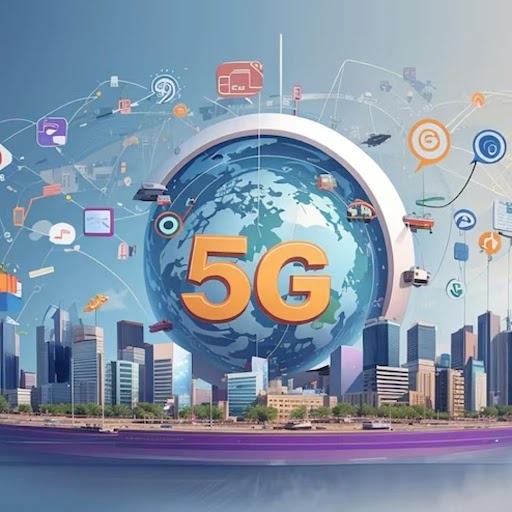2. What kind of investments are being made into the 5G Technology?
The 5G network is the next generation of wireless technology, and it is expected to revolutionize
the way we live, work and play. In order to bring 5G to India, a huge investment is required. The
Indian government is working with private companies and foreign investors to make the necessary
investment in 5G infrastructure.
5G will provide extremely fast data speeds, low latency and new capabilities that will enable a
wide range of new applications and services. This will create opportunities for businesses and
consumers alike. For example, 5G will enable new services such as smart cities, connected cars
and the Internet of Things. It will also provide a boost to existing services such as mobile
broadband and streaming video.
The government is working to create the right environment for 5G investment, including by reforming
the telecom sector and allocating spectrum for 5G. In addition, the government is also working on a
new National Digital Communications Policy, which will provide a roadmap for the development of
the 5G ecosystem in India.
3. What benefits can businesses and consumers reap from 5G Technology?
5G is the next generation of wireless technology, and it promises to revolutionize the way we live
and work. With speeds up to 100 times faster than 4G, 5G will enable businesses to do more with
less, and consumers will be able to enjoy ultra-fast mobile broadband and streaming services.
There are a number of benefits that businesses and consumers can reap from 5G. For businesses, 5G
will enable them to do more with less. With the increased speeds and capacity, businesses will be
able to process data faster, connect to more devices, and enjoy improved quality of service. 5G
will also enable businesses to offer new and innovative services to their customers.
For consumers, 5G will mean ultra-fast mobile broadband and streaming services. With speeds up to
100 times faster than 4G, consumers will be able to download movies, music, and games in seconds,
and stream live video with no buffering. 5G will also enable new and innovative services such as
augmented reality and virtual reality.
4. Is 5G Technology worth the investment?
The benefits of 5G technology are well-documented, and the potential for this next-generation
technology to revolutionize the way we communicate is immense. However, with any new technology
there are always risks and concerns associated with its implementation. One of the key concerns
with 5G is its potential impact on human health.
There is still much unknown about the long-term effects of 5G technology on human health, but
there are some studies that have raised red flags. For example, one study found that 5G exposure
can cause DNA damage in human cells. Another study found that 5G exposure can alter brain
activity.
Given the potential risks associated with 5G, it’s important to weigh the pros and cons before
making any decisions about its implementation. The potential benefits of 5G are great, but we need
to be sure that the risks are acceptable before moving forward.
Conclusion
While the focus of 5G is on connecting devices to the internet, it is more than that. 5G also has
the potential to revolutionize how we live and work. For example, 5G could enable new applications
in areas such as healthcare, transportation, and manufacturing. In healthcare, 5G could be used to
connect patients and doctors remotely, or to provide real-time monitoring of patients’ vital
signs. In transportation, 5G could be used to connect vehicles to each other and to
infrastructure, potentially reducing accidents and traffic congestion. In manufacturing, 5G could
be used to connect factories and production lines, or to provide real-time monitoring of
production processes. 5G could also enable new types of applications that we have not even thought
of yet. In other words, 5G is not just about connecting devices to the internet – it has the
potential to change the way we live and work.
